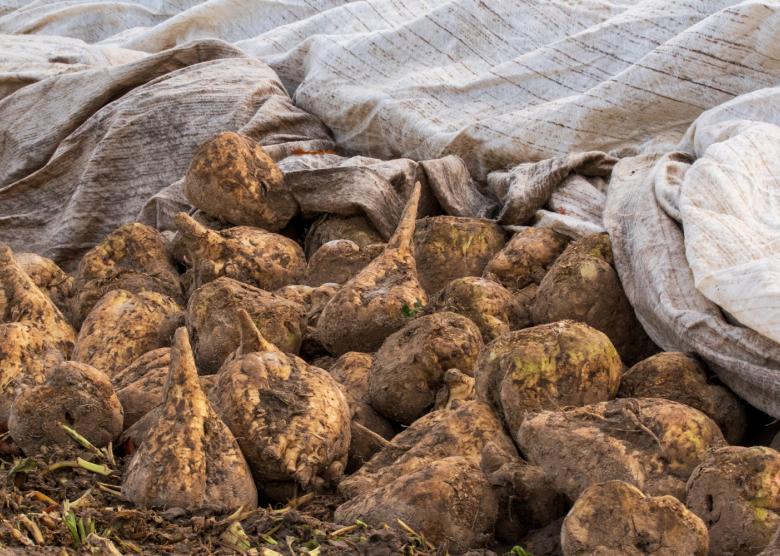The Excellent Dispute: Beet Sugar Vs Cane and Their Influence on Health And Wellness
The recurring debate bordering beetroot sugar and cane sugar raises crucial inquiries concerning their corresponding health impacts and more comprehensive ramifications for customer selections. This discussion invites us to consider not just the sweetness we select, yet the significant effects of those options on our wellness and the earth.
Summary of Sugar Resources
Sugar, an extensively eaten sugar, largely originates from two main sources: sugar beets and sugar walking stick. Sugar walking stick prospers in subtropical and exotic climates, with significant producers including Brazil, India, and China.
Alternatively, sugar beetroots are mostly expanded in temperate regions, with significant manufacturing in nations such as the USA, France, and Germany. The beets are gathered from the ground, cut, and subjected to a process that transforms the drawn out juice into granulated sugar. While both sugar resources inevitably generate sucrose, their farming practices, refining methods, and geographic circulations vary markedly.
These distinctions can affect not just the ecological effect of sugar production yet also the financial facets of sugar prices and trade. Recognizing the beginnings of these sweeteners is important for policymakers and consumers alike, as it lays the structure for educated conversations about their wellness ramifications and sustainability.
Nutritional Contrast
When checking out the dietary profiles of beetroot sugar and walking stick sugar, both sources share a comparable make-up as they mostly contain sucrose. Sucrose is a disaccharide, made up of sugar and fructose, and is accountable for the sweetness connected with both sugars. The refining processes for both beetroot and cane sugar return products that are mainly pure sucrose, with minimal traces of vitamins, minerals, or other nutrients.
In regards to calorie content, both beet and walking cane sugars supply approximately 4 calories per gram. Neither kind of sugar supplies substantial dietary advantages beyond energy stipulation, as they do not have necessary vitamins or minerals. The presence of trace elements, such as magnesium, calcium, and potassium, can differ slightly in between the 2, mainly due to the agricultural methods and dirt problems in which they are grown.
Furthermore, the glycemic index worths of beetroot sugar and cane sugar are similar, indicating similar effects on blood sugar levels. In general, from a dietary viewpoint, beetroot and walking cane sugars are functionally equal, adding primarily to calorie consumption without supplying substantial wellness benefits over one an additional.
Health Implications
The health ramifications of consuming beet sugar and cane sugar warrant mindful consideration, particularly offered the climbing frequency of sugar-related health problems. Both sorts of sugar contribute comparable calorie values and can cause raised threats of weight problems, type 2 diabetes, and cardiovascular illness when consumed in extra. The body metabolizes both sugars right into glucose, which can create spikes in blood sugar levels, causing insulin resistance gradually.
While there is ongoing argument concerning the glycemic index of these sugars, research studies recommend that both can negatively affect metabolic wellness if eaten in huge quantities. beet sugar vs cane. In addition, the prospective presence of impurities in beetroot sugar, such as pesticides from standard farming methods, raises additional health and wellness concerns. Alternatively, cane sugar, especially when minimally refined, might provide a somewhat much more favorable account because of its all-natural state
Additionally, the intake of sugarcoated, no matter the source, is connected to adverse health and wellness end results, consisting of oral issues and fatty liver illness. Small amounts is vital, and individuals must Web Site be conscious of their total sugar intake from all sources, eventually prioritizing whole foods over added sugars for optimal health and wellness results.
Ecological Effect
Recognizing the health implications of beet and walking stick sugar likewise leads to an assessment of their ecological impact, which can significantly influence agricultural sustainability and ecological balance. Both sugar resources have unique ecological impacts, formed by their cultivation methods and geographical needs.

On the other hand, beetroot sugar is typically grown in temperate climates and typically includes varied plant turnings. This method can improve dirt wellness and reduce dependence on chemical inputs. However, intensive beet farming can also lead to nutrition exhaustion and bug stress otherwise taken care of sustainably.
Both sugar kinds existing obstacles and possibilities for ecological stewardship. Advertising sustainable agricultural methods and responsible sourcing can alleviate their impacts, guaranteeing that sugar manufacturing straightens with environmental preservation and lasting food safety and security.
Customer Preferences
Amid growing understanding of wellness and environmental issues, consumer choices see post for sugar types are increasingly affected by understandings of health advantages, sustainability, and honest sourcing. Beet sugar and walking stick sugar each present one-of-a-kind features that attract different customer demographics.
Health-conscious consumers frequently inspect the nutritional accounts of these sugars, seeking options perceived as much less processed or more all-natural. Cane sugar, often considered as the conventional sugar, is sometimes preferred for its perceived pureness and simplicity. On the other hand, beet sugar, which is often originated from genetically modified plants, faces suspicion amongst those concerned regarding GMOs.
Sustainability is another significant variable influencing customer selections. As understanding of agricultural methods expands, several consumers choose for items that line up with eco-friendly farming approaches. Walking stick sugar manufacturing, particularly when sourced from sustainable ranches, can attract eco-conscious customers.
Ethical sourcing plays an essential role also, with customers increasingly favoring items that sustain fair labor methods. Qualifications such as Fair Trade can boost the attractiveness of walking cane sugar in the market. Eventually, customer preferences are shaped by an intricate interaction of health, environmental, and honest factors to consider, driving need for both beet and walking stick sugars in varied markets.
Verdict
Finally, the argument between beet sugar and walking cane sugar incorporates various elements, including dietary accounts, health effects, and environmental repercussions. beet sugar vs cane. While both sugars mainly contain sucrose and exhibit similar caloric content, concerns concerning pesticide usage in beetroot sugar and the eco-friendly impact of cane sugar monoculture warrant careful consideration. As customers progressively focus on sustainability and wellness, educated selections relating to sugar consumption come to be important in promoting overall well-being and ecological stewardship
